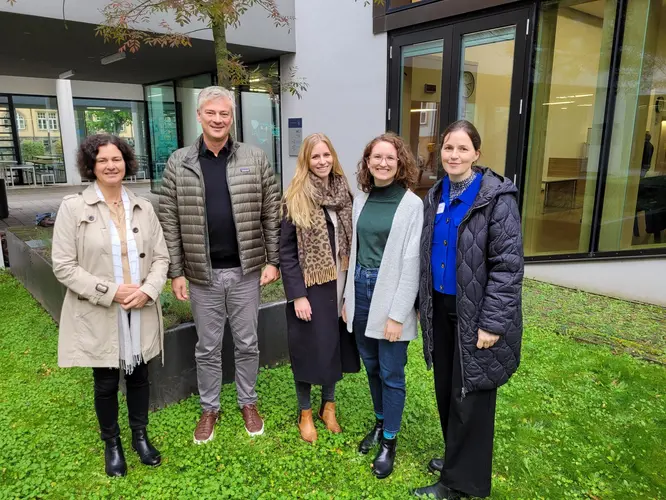DiSo-SGW

The DiSo-SGW project consortium comprises 13 universities and research institutes which collaborate on an evidence-based (further) development, evaluation, and implementation of teacher training modules. Guided by the principles of general and subject-specific digital sovereignty, these training modules aim to assist teachers in building and enhancing digital competencies, dispositions, and attitudes. The DiSo-SGW project consortium forms part of the Competence Center for Languages/Society/Economics which is part of the larger Competence Network lernen:digital.
Click here for a recent report on our uniblog.
TEFL Focus: Extended Reality (XR) and Global Education
In our project group, we aim to develop, test, and implement research-based teacher training programs focusing on global education and extended reality, i.e. virtual reality, augmented reality, and mixed reality, in English language education. We are part of the project group focusing on foreign language education in which we are cooperating with the Universities of Bremen (Prof. Dr. Andreas Grünewald and Leona Droste) and Würzburg (Prof. Dr. Maria Eisenmann and Jeanine Steinbock).
What is the Competence Network lernen:digital?
The Competence Network lernen:digital facilitates the exchange between academia and practice for the digital transformation of schools and teacher education. It consists of four competence centers, namely STEM (Science, Technology, Engineering, and Mathematics), Languages/Society/Economics, Music/Art/Sport, and School Development, and draws on expertise from around 200 international research projects, producing evidence-based materials and concepts for school development in the digital era, with support from the European Union – NextGenerationEU and the Federal Ministry of Education and Research.
The Competence Center for Languages/Society/Economics develops, tests, and implements research-based teacher training programs for digital language instruction and social and economic sciences teaching. It explores integrating topics like "Artificial Intelligence" and "Digital Sovereignty" into subject-specific instruction and teacher education, with plans for nationwide dissemination through Open Educational Resources. The center's six project consortia began their work on June 1, 2023.
Funding: European Union (NextGenerationEU), BMBF
Duration: 06/2023-12/2025
Project members: Jr.-Prof. Dr. Theresa Summer and Michelle Zirkel (University of Bamberg)